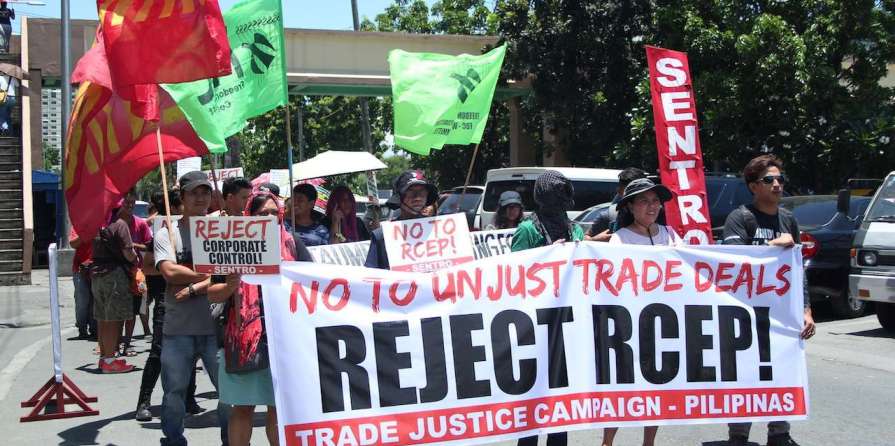Ensure RCEP meets unions’ five key demands
Malaysia Kini - 2 July 2019
Ensure RCEP meets unions’ five key demands
LETTER | In conjunction with the latest round of Regional Comprehensive Economic Partnership (RCEP) negotiation in Melbourne on June 30, 2019, Asia Pacific trade unions jointly urge participating governments to ensure the RCEP meets unions’ five key demands.
First, participating governments must comply with ILO fundamental conventions and commit to enforceable labour rights in the trade agreement. Domestic labour laws must be reformed prior to signing to ensure its compliance with the principles of freedom of association, collective bargaining, prohibition of forced and child labour and no discrimination.
Second, the controversial Investor-State Dispute settlement (ISDS) mechanism should be removed from the RCEP as it gives investors enormous and arbitrary power to unilaterally sue the state. Such an unaccountable mechanism not only violates the principle of sovereign states by potentially voiding domestic laws enacted through democratic process but also exposes the governments to the risk of millions in damages and extravagant legal fees.
Third, public procurement and public service should be excluded from the trade agreement to ensure Southeast Asian governments retain policy space to conceive and implement industrial policy that is adequate to the distinct stage of economic development of each country as a measure to protect employment and local industries.
Fourth, the negotiating texts of the trade agreement must be made available for public scrutiny in a timely fashion and a meaningful, appropriately resourced consultation structure with all stakeholders including trade unions must be established before and during negotiation.
Fifth, governments must conduct a human rights impact assessment to provide a holistic analysis on RCEP’s impact on employment, SMEs, digital infrastructure, right to access to medicine and seeds. The impact assessment report must be tabled at parliaments, state assemblies, local councils and national tripartite bodies for debate and deliberation.
Representing millions of workers in the region, we hereby register our grave concern over the ongoing secret negotiations of the mega-regional trade agreement since 2013, which covers a region comprising half the world’s population, 30 percent global GDP and 25 percent of world exports.
It has been a concern of trade unions and civil society organisations that trade agreements are increasingly used by multinational corporations to overrule state policies and to create a "friendly" business environment that can maximise their economic profits at the expense of workers and human rights.
These corporations see it as their right to sue governments for implementing health and other social policies that protect the rights of workers and the general public. Notoriously, tobacco giant Philip Morris invoked the ISDS to sue the Australian government for introducing plain packaging for cigarettes.
We insist that technological innovation is to be used for the benefit of the people. The intellectual property regime and patent laws must not be devised in a manner that deprives people of obtaining affordable generic medicine and plant seeds for subsistent agriculture. The inclusion of Trips-plus and Upov 91 provisions in RCEP has been widely criticised for jeopardising people’s right to health and food.
With this, Asia Pacific trade unions call upon all participating governments to provide written agreements that the RCEP must comply with the union’s five key demands.
The above is issued by :
IndustriAll Global Union, Asia Pacific
Building and Woodworkers International, Asia-Pacific
UNI Global Union, Asia Pacific
International Domestic Workers Federation (IDWF/FITH/FITD)
Asean Services Employees Trade Union Council






